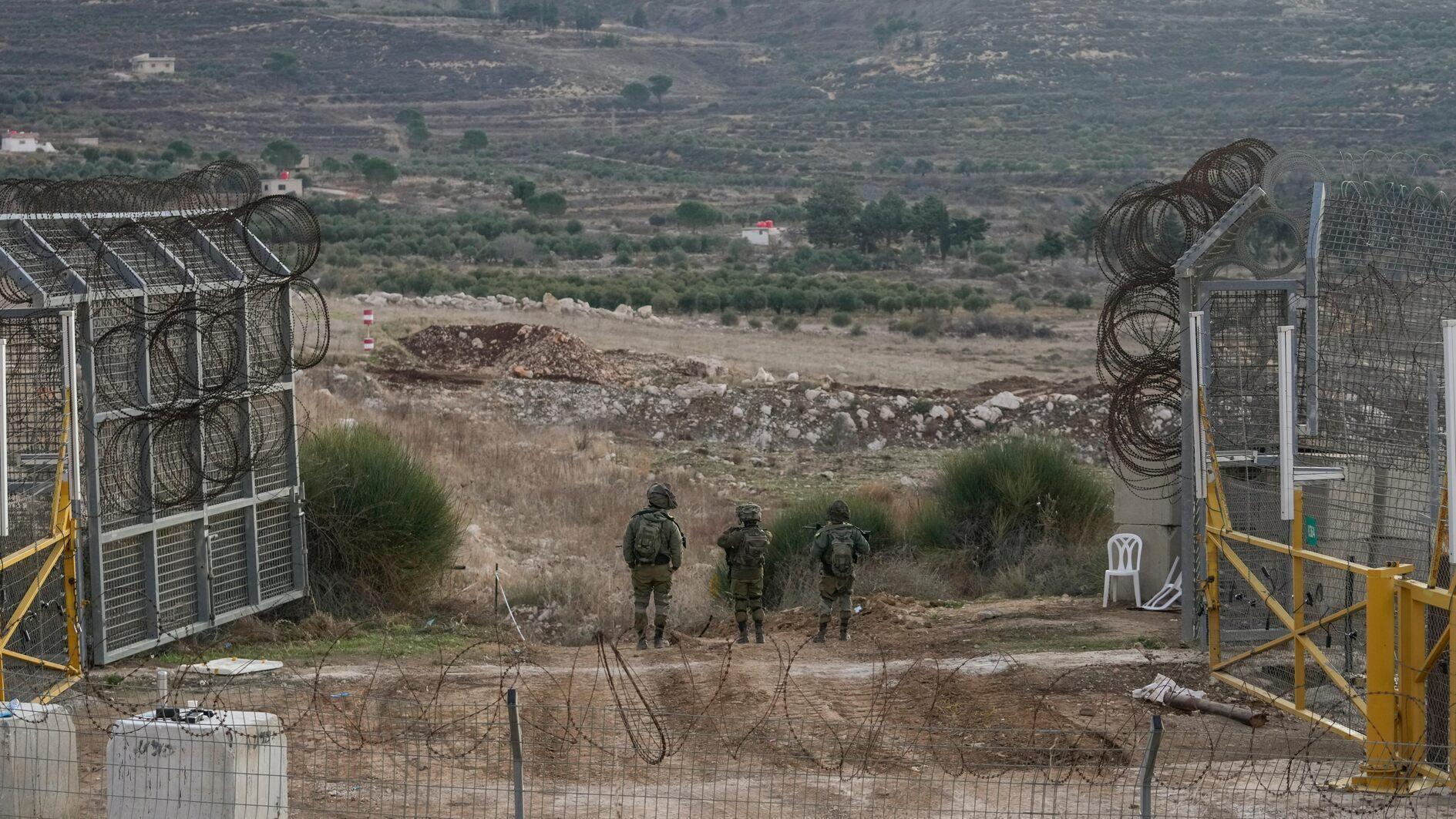
Israeli soldiers stand guard on a security fence gate near the so-called Alpha Line that separates the Israeli-occupied Golan Heights from Syria, in the town of Majdal Shams, Monday, Dec. 9, 2024.
It took just 11 days for Syrian opposition groups to force Bashar al-Assad to flee the country and impose a new revision of the strategic map in the Middle East.
The Syrian strongman had for nearly 14 years held off an uprising that many believed had been exhausted. But his downfall followed a series of battlefield convulsions for other allies of Iran.
Israel has all but decapitated the Hezbollah leadership in Lebanon since September, while the killing of Hamas figureheads has dealt major blows to Assad's key backer Tehran.
Andreas Krieg, a security specialist at King's College London, said that Iran and other "Axis of Resistance" members would now have to concentrate on their "home turf."
"And so the axis will lose its transnational flavour and its regional strategic depth."
The lightning speed at which the rebels, dominated by Hayat Tahrir al-Sham (HTS) group, took Aleppo and then the country stunned the whole world.
No one in Syria, or in the capitals that opposed or supported Assad, had expected Damascus to fall so quickly. Attention had been focused on the Gaza war between Israel and Hamas and Israel's strikes on Hezbollah in Lebanon.
The 59-year-old Syrian leader long seemed secure with the backing of his Iranian, Russian and Hezbollah allies.
Some Arab neighbours had even started moves to normalize relations, strained since the civil war started with the repression of anti-government protests in 2011.
But HTS, which originated from Al-Qaeda before severing ties, smashed that outlook in just a few days when cities fell and statues of Assad's feared father Hafez al-Assad were toppled.
Türkiye 'regional winner'
The Hamas attack on Israel on Oct. 7, 2023, drew Iran and its "Axis of Resistance" allies into a conflict that has exposed their weaknesses.
Hezbollah's military power has been undermined and its leader, Hassan Nasrallah, has been killed by Israel.
Israel had already been attacking Hezbollah's military and financial supply lines from Iran through Syria.
That support faces a fresh threat from the new masters of Damascus who will point to Hezbollah's crucial role in keeping Assad in power for so long.
Iran's remaining supporters in Yemen and Iraq remain a nuisance but appear unable to effect major change.
Russia, embroiled in a resource-sapping war with Ukraine, also faces high stakes decisions as it biggest Middle East naval base is at Tartus on Syria's Mediterranean coast.
"They are likely going to lose that," said Krieg. "I can't see how the new regime or the new socio-political order will allow the Russians to remain after everything the Russians have done to prop up the Assad regime."
Türkiye, a key supporter of the opposition forces, is the big regional winner from Assad's fall, Krieg added.
Soner Cagaptay, senior fellow at the Washington Institute for Near East Policy, predicted that "Türkiye's influence will rise in Damascus, replacing that of Iran and Russia".
Cagaptay argued that Ankara must now help the Hayat Tahrir al-Sham (HTS), which led the rebel offensive, to "gain international recognition" and "kick Russia and Iran out".
But that "won't work if Türkiye becomes Syria's new patron", he added.
'Game over'
With conflict being fought on several Middle East fronts, the region will also have to handle the new U.S. administration of Donald Trump.
"In a moment of complete uncertainty, this transformative event makes everything so unpredictable," said Aron Lund, a specialist at the Century International think tank.
Various countries in the region had been backing different anti-Assad factions in Syria since 2011.
But the United Arab Emirates and other Gulf states had recently restarted relations with Assad, after over a decade of his isolation.
Israel, and its friends and enemies, expect the frontlines to shift again when Trump returns to the White House in January.
From Morocco to Saudi Arabia and Israel, countries will be hoping to secure Trump's backing through his renowned deal-making diplomacy.
He had said in the past that the United States should not be involved in Syria's war. But Trump will also have to deal with a new Middle East.
Krieg said events in Syria should also be a warning to the leaders in Libya, Egypt and Tunisia that also saw uprisings during the Arab Spring.
"It is game over for the myth of 'authoritarian stability'," he said. "Game over for the counter-revolutionaries in Russia, UAE and Iran."